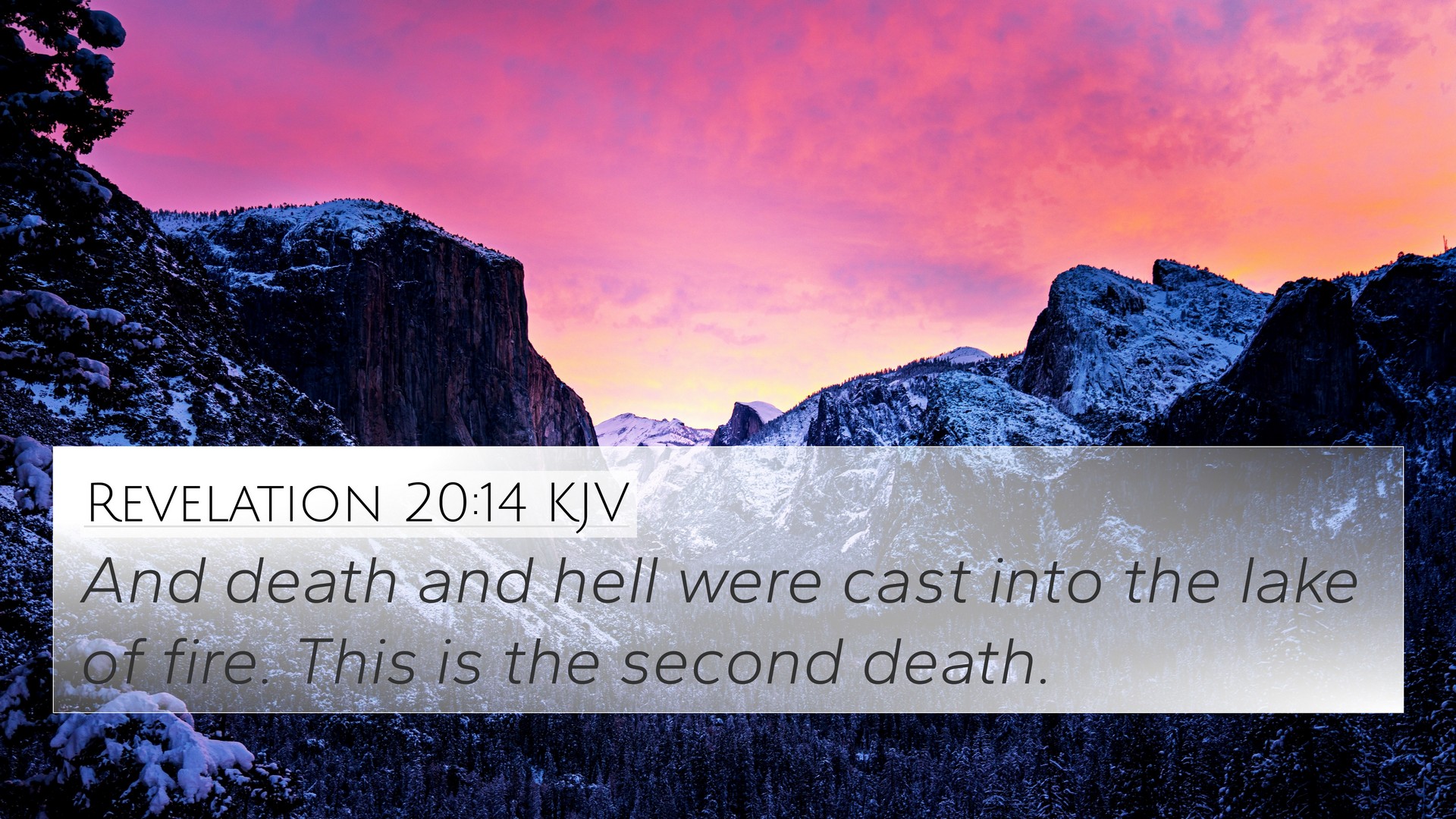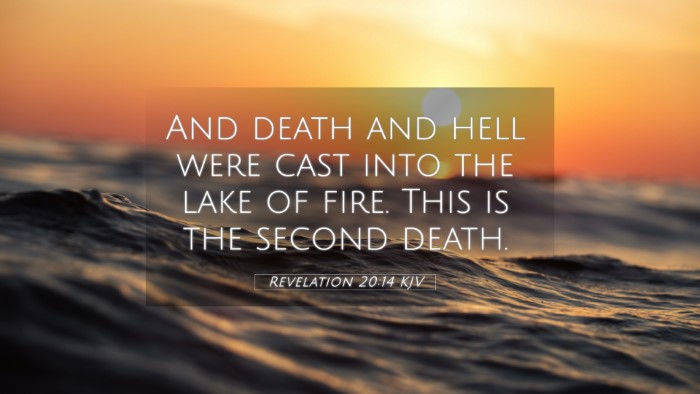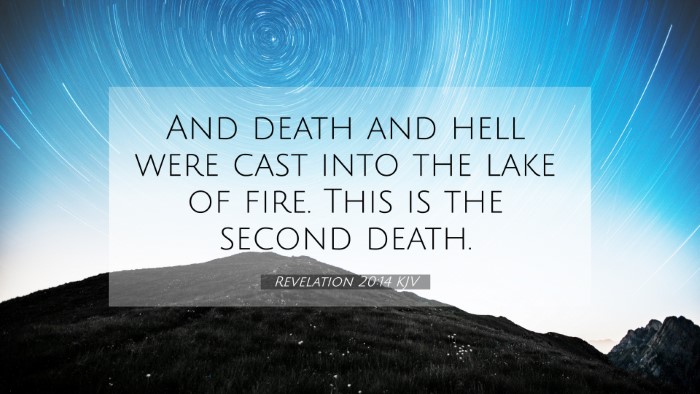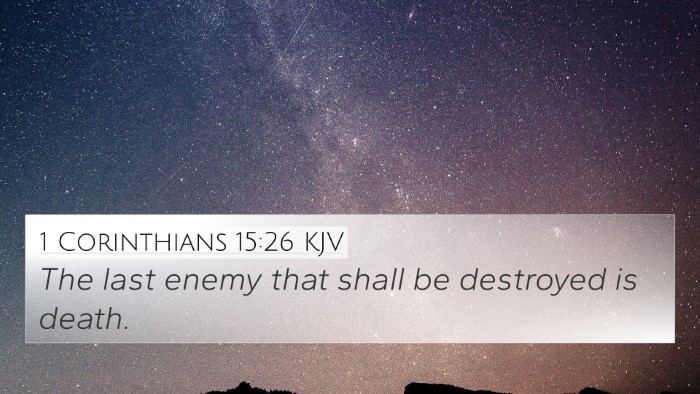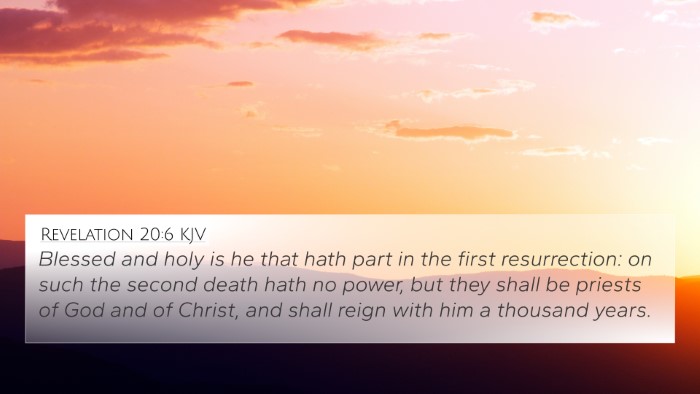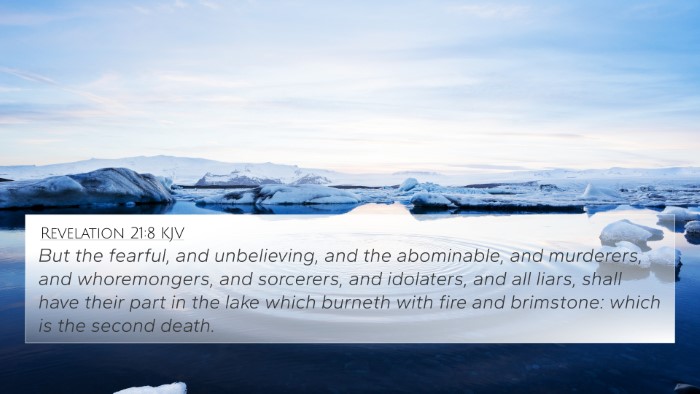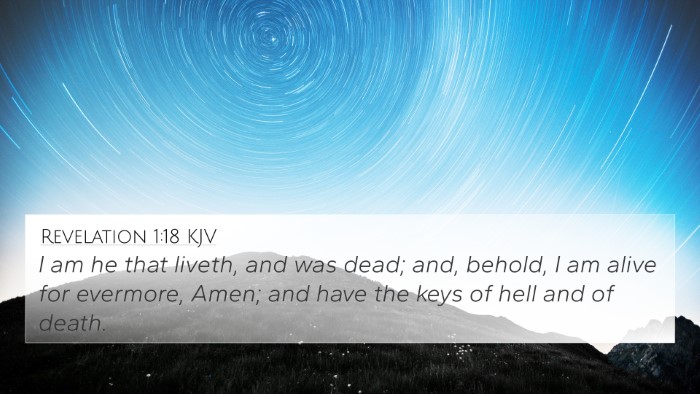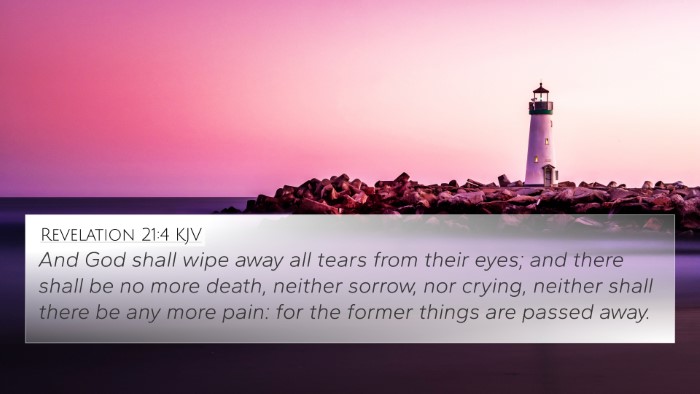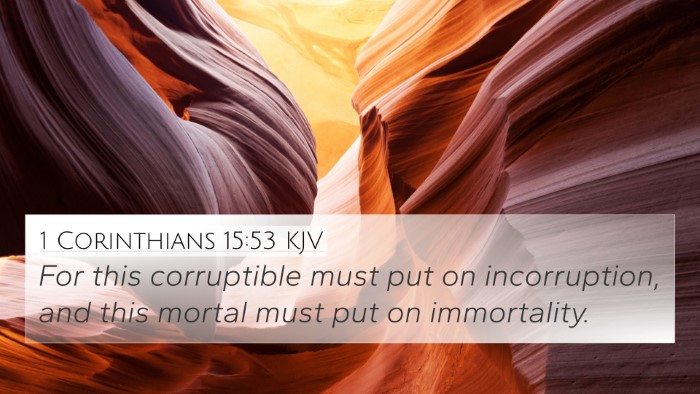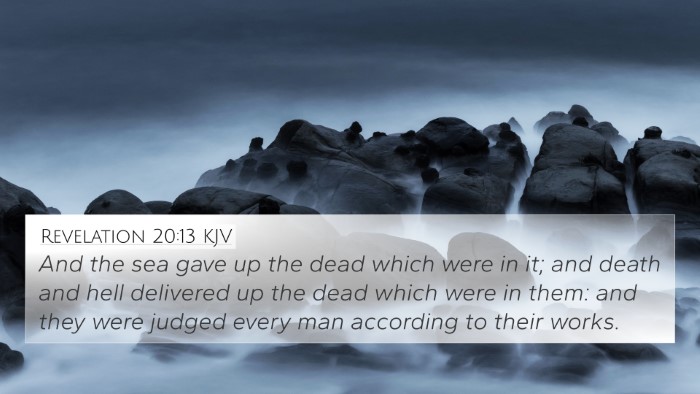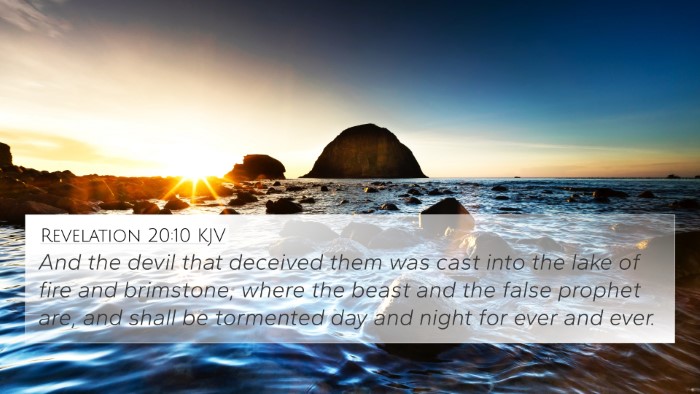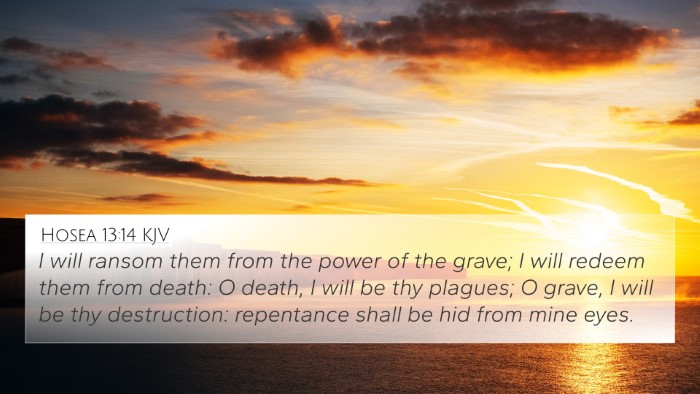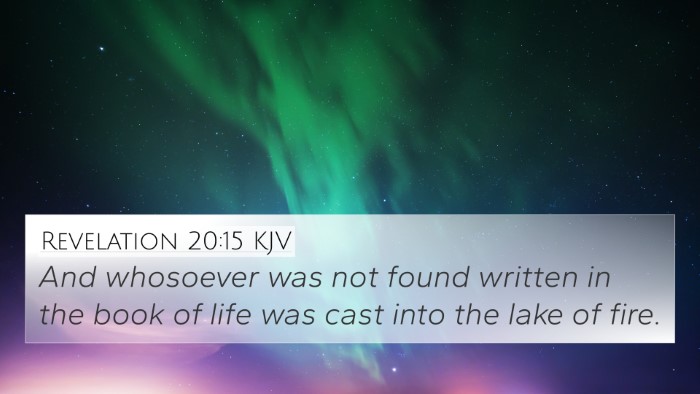Understanding Revelation 20:14
Revelation 20:14 states, "And death and hell were cast into the lake of fire. This is the second death." This verse encapsulates profound theological implications regarding judgment, the fate of the wicked, and the finality of death in Christian doctrine.
Summary of Insights from Commentaries
-
Matthew Henry's Commentary:
Henry emphasizes that the "lake of fire" symbolizes eternal punishment. He notes that death and hell, representing the final enemies of humanity, are ultimately defeated and thrown into this eternal abyss. This event signifies the complete eradication of death, which Paul mentions in 1 Corinthians 15:26.
-
Albert Barnes' Notes:
Barnes highlights that this second death is not a mere cessation of existence but rather an eternal separation from God's grace and presence. He draws parallels to the occupational duties of hell, as it loses its power over the souls it once held captive. His interpretation aligns with the eternal consequences that are reverberated throughout scripture.
-
Adam Clarke's Commentary:
Clarke elaborates on the nature of the "lake of fire," asserting it's emblematic of final judgment. He connects it to Old Testament beliefs about Sheol and highlights its role as a place of punishment. Clarke's analysis leads to an interpretation that links physical death with spiritual death, providing a warning about the consequences of sin.
Bible Verse Cross-References
Revelation 20:14 interconnects with several other scriptures, creating a thematic continuity throughout the Bible. Here are significant cross-references:
- 1 Corinthians 15:26: "The last enemy that shall be destroyed is death."
- Hebrews 2:14: "That through death he might destroy him that had the power of death, that is, the devil."
- Matthew 10:28: "And fear not them which kill the body, but are not able to kill the soul: but rather fear him which is able to destroy both soul and body in hell."
- Revelation 21:8: "But the fearful, and unbelieving, and the abominable, and murderers, and whoremongers, and sorcerers, and idolaters, and all liars, shall have their part in the lake which burneth with fire and brimstone: which is the second death."
- Isaiah 66:24: "And they shall go forth, and look upon the carcases of the men that have transgressed against me: for their worm shall not die, neither shall their fire be quenched; and they shall be an abhorring unto all flesh."
- 2 Thessalonians 1:9: "Who shall be punished with everlasting destruction from the presence of the Lord, and from the glory of his power."
- Luke 16:23-24: The parable of the rich man and Lazarus describes the torment of the rich man in Hades, linking the concepts of physical and spiritual suffering.
- Matthew 25:41: "Then shall he say also unto them on the left hand, Depart from me, ye cursed, into everlasting fire, prepared for the devil and his angels."
Thematic Connections Between Bible Verses
These verses collectively underscore the themes of judgment, eternal consequences, and the triumph of divine justice over evil. They encourage a comparative Bible verse analysis to unveil deeper insights about the nature of salvation and condemnation.
Exploring the Second Death
The phrase "second death" points to a definitive separation from God, echoing principles laid bare in various epistles, where Paul discusses the concept of eternal life versus eternal separation. This dichotomy is critical for understanding the Christian hope as it contrasts the promise of eternity with God against the fate of the unrepentant.
Scriptural Cross-Referencing Tools
For those interested in further exploring the rich tapestry of connections within the scripture, various tools for Bible cross-referencing can aid in this study:
- Bible Concordance: A vital resource that lists words in the Bible and provides the verses in which they appear.
- Bible Cross-Reference Guide: Offers insights into how verses relate and connect thematically across scripture.
- Bible Chain References: These resources link verses together in thematic chains, facilitating deeper understanding.
How to Use Bible Cross-References
Engaging with scripture using cross-references not only enhances personal study but also enriches sermons and teachings. By identifying connections between Old and New Testament verses, readers can draw comparative studies that illuminate biblical truths. This practice is essential for modern believers seeking to understand the enduring messages of the Bible.
Conclusion
Revelation 20:14 serves as a pivotal verse illustrating the finality of judgment and the victory of life over death through Christ. Understanding its implications through public domain commentaries enriches our comprehension and provides a foundation for inter-Biblical dialogue. As we reflect upon the significance of the "second death," we are reminded of the grave consequences of sin and the hope found in Christ's resurrection, which assures believers of eternal life.
